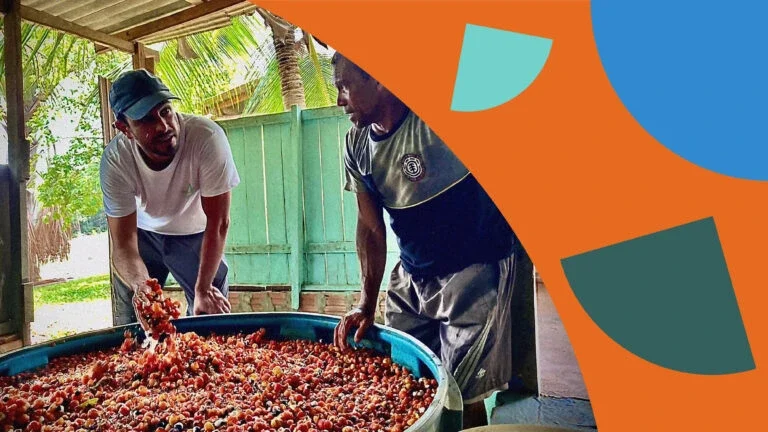“Local people and partners have to be part of the work we do,” she says. “We come with a well-respected brand, but we need community engagement and to listen to their knowledge. You can only do that here; it can’t happen in an office in D.C.”
The Rockefeller Foundation’s presence in the region began in the mid-20th century. We worked with grantees to develop vaccines and establish universities in the 1930s, increase crop production in Mexico and Colombia in the 1940s, and eradicate yellow fever-carrying mosquitoes from thirteen Latin American countries in the 1950s. Today, The Rockefeller Foundation is re-establishing its presence in the region as LAC’s communities experience the impact and pressure of rising global temperatures in its cities, communities, and ecosystems.
“This region is dynamic and heterogeneous. There’s so much here we’re learning about. Our people-centered solutions come down to the question, can we create economic opportunity through green transition?” said Program Strategy Manager Charlotte Tweedley, who joined the team’s trip to the Amazon.
Achieving a just transition is vital as access to basic needs and widening inequality threaten the health and livelihood of 41 million people in LAC. At the same time, the region is poised to become a global leader in climate action, since it’s endowed with 50% of the world’s biodiversity and possesses natural assets that will play a significant role in the world’s energy transition. That’s why the world is looking to LAC for leadership, and why The Rockefeller Foundation is proud to be there for support.
Latorre says local knowledge and cognizance of the existing disparities are crucial to making an impact.
“Understanding the region’s diversity — the islands of the Caribbean, large countries like Brazil and Mexico, mid-sized countries like Colombia, Peru, Chile — is key,” she says. “Today, we are a very small regional team with big intentions. With that comes the responsibility to elevate the discussion and our presence in the region and to strengthen our partnerships and our work.”
So far, that work includes funding for Mombak’s Amazon Reforestation Fund, FUNDAEC’s food security program for impoverished communities in Colombia, Mia Mottley’s climate financing Bridgetown Initiative in Barbados, Dalberg Catalyst’s data-driven extreme heat solutions in Chile’s urban centers, Global Energy Alliance for People and Planet (GEAPP)’s electrification of Haiti through meshgrid renewable technology, and UWI’s research into health impacts of climate change in Trinidad and Tobago.



